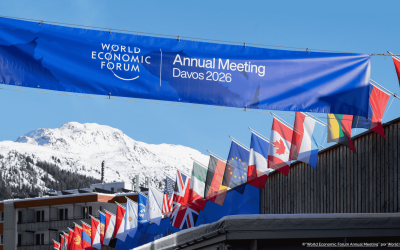Economists and policy experts have identified several flaws in the current economic model, primarily related to sustainability, equity, and resilience. Below are some of the most significant issues and proposed solutions:
Economic Inequality
-
Problem: The gap between the rich and the poor has significantly widened, resulting in highly unequal wealth and income distribution.
-
Solutions: Implementation of progressive fiscal policies, improving access to education and healthcare, increasing the minimum wage, and strengthening social safety nets.
Environmental Degradation
-
Problem: The current economic model often prioritizes short-term economic growth over environmental sustainability, leading to ecosystem degradation, loss of biodiversity, and climate change.
-
Solutions: Adoption of a circular economy, implementation of carbon taxes, subsidies for renewable energy, and stricter regulations on pollution and natural resource use.
Unsustainable Growth
-
Problem: The obsession with GDP growth overlooks planetary limits and human well-being, leading to unsustainable resource use.
-
Solutions: Development of new economic progress indicators that include well-being and sustainability factors, such as the Social Progress Index (SPI) or the Human Development Index (HDI).
Lack of Economic Resilience
-
Problem: Globalization and economic interdependence have created fragile systems that can collapse under global crises like pandemics or extreme climate events.
-
Solutions: Diversifying economies, strengthening critical infrastructure, promoting more self-sufficient local and regional economies, and creating emergency funds and rapid response mechanisms.
Social and Labor Exclusion
-
Problem: Many people, especially in vulnerable communities, are excluded from the formal labor market and economic opportunities.
-
Solutions: Promotion of inclusive and decent employment, support for small and medium-sized enterprises, and active employment policies that promote the inclusion of women, youth, and other marginalized groups.
Global Governance Crisis
-
Problem: International institutions often lack the authority and resources necessary to address global issues effectively.
-
Solutions: Reforms in global governance to make international institutions more representative and effective, strengthening multilateral cooperation, and developing more robust international legal frameworks for sustainability and economic justice.
Establishing a new economic model is essential to effectively tackle the challenges of the 21st century. A model that prioritizes environmental sustainability, social equity, economic resilience, human well-being, and global cooperation can provide a stronger foundation for a prosperous and just future for all. Here are some emerging models of economic thought:
Economy of the Common Good or Purpose Economy
-
Purpose: To prioritize the well-being of people and the planet over profit, promoting values like human dignity, solidarity, ecological sustainability, and social justice.
-
Implementation: Businesses and organizations adopt the common good balance sheet to measure their social and environmental impact, and public policies incentivize responsible economic behaviors.
Circular Economy
-
Purpose: To reduce waste and keep products, materials, and resources in use for as long as possible.
-
Implementation: Promoting the design of durable, reusable, and recyclable products, and encouraging business models based on reuse and recycling.
Degrowth
-
Purpose: To reduce consumption and production in developed countries to achieve a sustainable ecological footprint while improving the quality of life.
-
Implementation: Policies promoting shorter working hours, increased leisure time, and community living, alongside the establishment of strict ecological limits.
Regenerative Economy
-
Purpose: To restore and regenerate natural systems, ensuring that economic activities contribute to ecosystem health.
-
Implementation: Regenerative agricultural practices, investments in green infrastructure, and policies supporting the restoration of degraded ecosystems.
Solidarity Economy
-
Purpose: To create an economy based on solidarity and cooperation rather than competition.
-
Implementation: Promotion of cooperatives, social enterprises, and other business models that prioritize worker and community well-being.
These models and solutions seek to address the fundamental flaws of the current economic system and create a more equitable, sustainable, and resilient economy. Several think tanks are dedicated to researching and promoting new economic models focused on people and the planet, looking for sustainable and equitable solutions. Here are some of the most influential:
Global Institutions
Club of Rome
- Purpose: Famous for its “Limits to Growth” report, the Club of Rome continues to research sustainability, economic growth, and models that promote human well-being and planetary preservation.
World Economic Forum (WEF)
- Purpose: In addition to its well-known annual meetings in Davos, the WEF leads initiatives like the “Fourth Industrial Revolution” and the “Great Reset,” aimed at reimagining the global economy for greater sustainability and equity.
McKinsey Global Institute (MGI)
- Purpose: Conducts research on the circular economy, sustainability, and social inclusion, focusing on how businesses and economies can adapt to these new models.
European Institutions
Institute for New Economic Thinking (INET)
- Purpose: To promote new ways of thinking about the economy that integrate sustainability, equity, and social well-being, challenging traditional economic paradigms.
Ellen MacArthur Foundation (UK)
- Purpose: To drive the transition to a circular economy, a regenerative system that seeks to reduce waste and keep resources in use longer.
New Economics Foundation (NEF) (UK)
- Purpose: To develop and implement ideas for an economy that works better for people and the planet, focusing on issues like economic justice, environmental sustainability, and community well-being.
U.S. Institutions
Rocky Mountain Institute (RMI)
- Purpose: Working to transform global energy systems toward more sustainable and efficient sources, while also promoting economic models that support this transition.
The Democracy Collaborative
- Purpose: To promote an economy centered on the well-being of communities and the planet, through community ownership models, cooperatives, and other inclusive and sustainable approaches.
Center for Economic and Policy Research (CEPR)
- Purpose: Advocating for economic policies that prioritize people’s well-being and environmental sustainability, analyzing and promoting policies that reduce inequality and protect the environment.
Institutions in the Rest of the World
Institute for Global Environmental Strategies (IGES) (Japan)
- Purpose: To provide research and policy solutions that promote environmental sustainability and inclusive economic development in the Asia-Pacific region.
Fundación Avina (Latin America)
- Purpose: To foster sustainable development and social justice in Latin America by supporting initiatives that integrate environmental protection with inclusive economic growth.
Center for Sustainable Development Studies (CEID) (Colombia)
- Purpose: To conduct research and policies that promote sustainable development, focusing on social equity and environmental conservation.
I never imagined, when I studied economics, that I would end up dedicating myself to social impact or the purpose economy, but it is true that economists are essential in addressing social and environmental challenges. They bring a rigorous, data-driven approach to analysis, policy design, and resource optimization. Their ability to integrate economic, social, and environmental considerations into practical and sustainable solutions is crucial for creating a more equitable and resilient future.
I hope it’s not too late and that together we can adapt our current economic model to the new reality we face.
“The ideas of economists and political philosophers, both when they are right and when they are wrong, are more powerful than is commonly understood. Indeed, the world is ruled by little else.” —John Maynard Keynes
4o
Davos 2026: plenty of diagnosis, few decisions
by Ángel Bonet | Jan 25, 2026
The annual World Economic Forum meeting once again brought together political leaders, CEOs and major investors in Davos, against a backdrop defined by three clear tensions: economic slowdown, an...
Just one year later: the lasting footprint of the solidarity ultramarathon in Anantapur
by Ángel Bonet | Jan 18, 2026
-By Montserrat López It has been exactly one year since our trip to India. A journey that does not end when you land back home. Its impact still reverberates. It continues. Exactly one year ago, we...
Takumi: when craftsmanship becomes business excellence with soul
by Ángel Bonet | Jan 11, 2026
In Japan, there is a word that goes far beyond a profession: takumi. It does not refer simply to a skilled craftsperson, but to someone who has devoted decades of their life to perfecting a skill...




